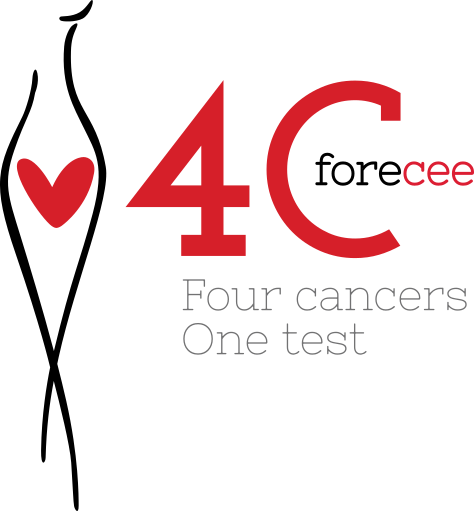Cancer screening programs such as mammography are often offered to all women in target age groups. However, it is well known that in women with a low risk of a certain cancer – for example, if there are no cases of breast cancer in the family – screening often leads to false-positive alarms and overdiagnosis. This can result in unnecessary overtreatment: surgery, chemotherapy, and radiotherapy that do not improve the patient’s chances of survival, but can cause physical and psychological harm.

Against this background, the Horizon2020 research project “Female cancer prediction using cervical omics to individualise screening and prevention” (FORECEE) has taken on the task of developing a test that could determine the risk of developing four cancers that are specific to women. The test will look for molecular changes in cells that predict a woman’s individual risk of developing breast, cervical, womb, and ovarian cancer. This could make it possible to identify women with a high risk of these cancers, and to spare women with a low risk from unnecessary screening and the anxiety of false alarms.
The role of the Harding Center is to develop ways of communicating the complex medical information behind testing a woman’s individual cancer risk in a way that is accessible and comprehensible to both doctors and patients. Specifically, the potential benefits and risks of the test need to be presented in a transparent manner. To find out exactly what information women need and to gauge their general acceptance of the test, the researchers plan to conduct a survey of the target group. Their findings will inform the development of information material.
Publications:
Rebitschek, F. G., Reisel, D., Lein, I., & Wegwarth, O. (2019). Epigenetic risk assessment of female cancers: Women's information needs and attitudes. Public Health Genomics, 22, 46-57. doi:10.1159/000501975 [Abstract]
Rebitschek, F. G., Pashayan, N., Widschwendter, M., & Wegwarth, O. (2019). Do cancer risk and benefit-harm ratios influence women's consideration of risk-reducing mastectomy? A scenario-based experiment in five European countries. PLoS ONE, 14(6):e0218188. doi:10.1371/journal.pone.0218188 [Article]
Wegwarth, O., Pashayan, N., Widschwendter, M., & Rebitschek, F. G. (2019). Women's perception, attitudes, and intended behavior towards predictive epigenetic risk testing for female cancers in 5 European countries: A cross-sectional online survey. BMC Public Health, 19:667. doi:10.1186/s12889-019-6994-8 [Article]
Wegwarth O., Widschwendter M., Cibula D., Sundström K., Portuesi R., Lein I., Rebitschek F.G. on behalf of the FORECEE (4C) consortium (2018). What do European women know about their female cancer risks and cancer screening? A cross-sectional online intervention survey in five European countries. BMJ Open 2018;8:e023789. doi:10.1136/ bmjopen-2018-023789 [Article]
Widschwendter, M., Jones, A., Evans, I., Reisel, D., Dillner, J., Sundström, K., Steyerberg, E. W., Vergouwe, Y., Wegwarth, O., Rebitschek, F., Siebert, U., Sroczynski, G., de Beaufort, I. D., Bolt, I., Cibula, D., Zikan, M., Bjørge, L., Colombo, N., Harbeck, N., Dudbridge, F., Tasse, A.-M., Knoppers, B. M., Joly, Y., Teschendorff, A. E., Pashayan, N., & on behalf of the FORECEE (4C) Consortium (2018). Epigenome-based cancer risk prediction: Rationale, opportunities and challenges. Nature Reviews Clinical Oncology, 15, 292-309. doi:10.1038/nrclinonc.2018.30 [Abstract]
